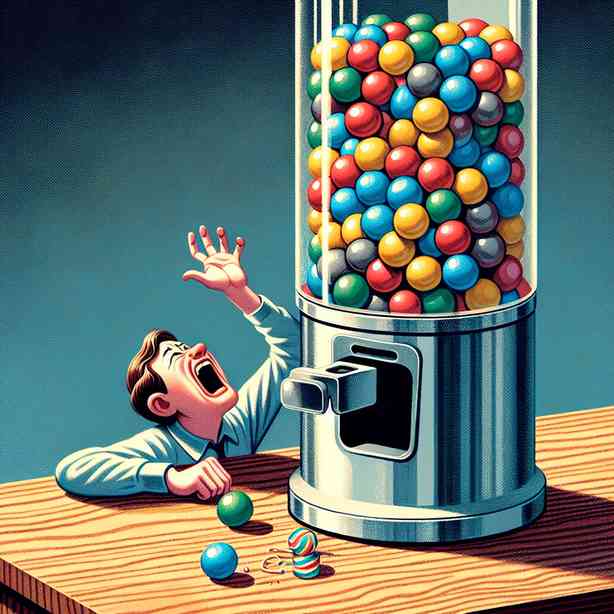
There’s a certain snack that has become infamous over time for its delightful flavor and satisfying crunch, yet it has a persistent reputation for getting stuck in our teeth. You might be wondering what snack I am referring to: popcorn. This seemingly innocent treat has captivated moviegoers, snack enthusiasts, and casual eaters alike. Understanding why popcorn is so beloved, and why it tends to cause dental frustrations, can reveal a lot about our snack habits and the physics of food.
Popcorn is not your average snack. It is made from a special type of maize kernel that has a tough outer shell, known as pericarp. When heated, the moisture inside the kernel turns to steam, creating pressure. Once the pressure reaches a certain threshold, the kernel bursts open, transforming into the fluffy, white snack we all know and love. This unique popping mechanism is what makes popcorn such an entertaining and enjoyable treat. Watching popcorn pop is often more than just satisfying; it’s a delicious show of culinary chemistry.
As we indulge in popcorn, especially in settings like movie theaters, we are often captivated by its buttery flavor and light texture. Many people have their own favorite toppings—be it a simple sprinkle of salt or a drizzle of chocolate. The versatility of popcorn allows it to transcend from a mere snack to a gourmet experience, with various recipes showcasing flavors like caramel, cheese, or even spicy seasonings.
However, with this delightful experience comes the inevitable consequence: popcorn can easily get stuck in our teeth. The very structure that gives popcorn its unique texture also makes it cling to dental surfaces. The small, irregular shapes of the popped kernels can wedge themselves between teeth or cling to braces, causing that all-too-familiar feeling of discomfort. It’s a humorous paradox that such a tasty treat can provide not only joy but also a minor dental dilemma.
Maintaining good oral hygiene becomes even more crucial when you indulge in popcorn. After enjoying a movie or binge-watching your favorite show with a big bowl of popcorn, it’s essential to be proactive about dental care. Brushing your teeth thoroughly and flossing can help dislodge any kernels stuck between your teeth. If you’re on the go and don’t have immediate access to your dental kit, think of easy solutions like drinking water to help flush out debris or using sugar-free gum to help keep your mouth clean.
Interestingly, dental experts suggest that if you really love popcorn but want to minimize the risk of getting it stuck in your teeth, you may want to choose your popcorn wisely. Air-popped popcorn tends to have fewer kernel remnants compared to those that are traditionally prepared with oil. Additionally, opting for popcorn with larger, fluffier puffs can also reduce the likelihood of them becoming wedged in hard-to-reach places.
Mindfulness while eating can also play an important role in enjoying popcorn. Taking smaller bites and chewing carefully not only enhances your enjoyment but can also help prevent pieces from getting lodged between your teeth. This habit can be applied not only to popcorn but to many snack foods that may pose similar challenges.
Despite its drawbacks, the love for popcorn persists. It is often associated with nostalgia, family gatherings, and cinematic experiences. The mere smell of popcorn can evoke a sense of comfort and pleasure, reminding us of fond memories spent with loved ones or engrossed in thrilling films. This emotional connection to popcorn may explain why we often overlook its sticky repercussions, savoring every last bite, knowing that a little cleanup is a small price to pay for such enjoyment.
In recent years, as our understanding of healthy eating evolves, popcorn has also gained recognition as a healthy snack option when prepared correctly. Air-popped, unsalted, and unbuttered popcorn can be a great source of fiber and low in calories, making it an appealing choice for many health-conscious individuals. This nutritious potential is particularly inviting as we continuously seek snacks that satisfy our cravings without compromising our health goals.
Popcorn is not just a snack; it’s an experience that combines texture, flavor, and emotion. Its rich history spans various cultures and time periods, adapting to preferences and innovations over centuries. From the Indigenous peoples of the Americas who first enjoyed it thousands of years ago to modern, gourmet popcorn shops offering artisanal flavors, popcorn’s journey is a testament to its enduring appeal.
Nonetheless, it’s essential to acknowledge the challenges that come with this beloved snack. The conflict between the enjoyment of popcorn and the issues it can cause for dental care highlights the balance we must strike as we navigate our eating habits. Acknowledging the joy popcorn brings while being conscious of its impact on our oral health exemplifies our ability to enjoy foods mindfully.
In conclusion, popcorn is indeed that one snack that captures our hearts with its delightful crunch and flavor, yet it consistently reminds us of its tendency to get stuck in our teeth. Embracing this duality can enrich our approach to snacking—celebrating the joy it brings while taking mindful steps to mitigate its annoyances. Whether savoring it at the movies, as part of a cozy night in, or as a healthy alternative, popcorn will undoubtedly continue to hold a cherished place in the world of snacks. Just remember to keep some dental care essentials nearby, because while the satisfaction of popcorn is undeniable, a little extra attention to dental hygiene can indeed make all the difference in enjoying this favorite snack without the aftermath of pesky kernels.


